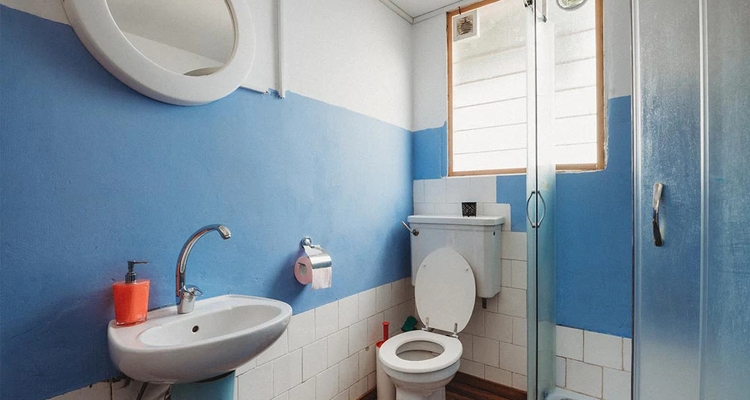
5 Eco Friendly Toilet Cleaner Brands
By Canopey Team
It’s some of the strongest stuff we keep in our homes, so this chemical cleaner can be harmful in lots of different ways including to the environment.
Check out our top eco friendly toilet cleaner brands for a fairer flush.
What’s so bad about ‘regular’ toilet cleaning products?
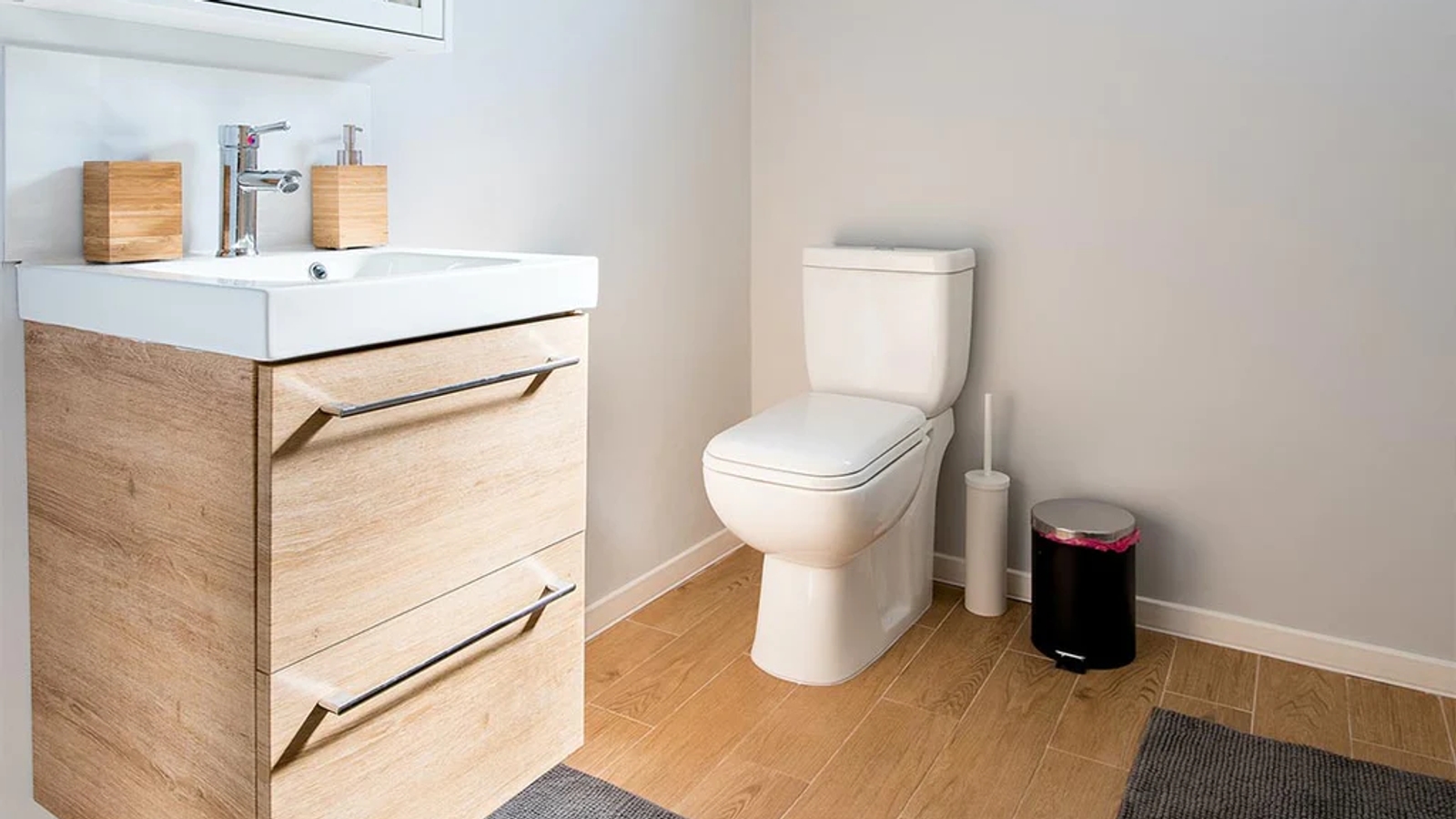
The bog. The loo. The restroom. Whatever you call it, we all know it’s not the best-smelling or cleanest of places in our homes.
But have we waged too great a war on the water closet? It’s one of the only places you expect to find incredibly strong and toxic chemicals, and unfortunately they’re almost always packaged in thick plastic bottles.
According to 2021 data for the UK an estimated:
- 2.18 million people used lavatory cleaners more than once a day
- 8.15 million people were heavy lavatory cleaner users
- 4.15 million people used bleach “once a day or more”
- 4.2 million people were heavy domestic bleach users
Millions of people means millions upon millions of plastic bottles and gallons of the harshest of chemicals.
So while our collective love of toilet cleaning not only has a plastic footprint – it introduces toxic chemicals into our water systems.
By switching to eco friendly toilet cleaners we can reduce both our plastic waste and the potential harm to plant and animal life.
What makes a good eco friendly toilet cleaner?
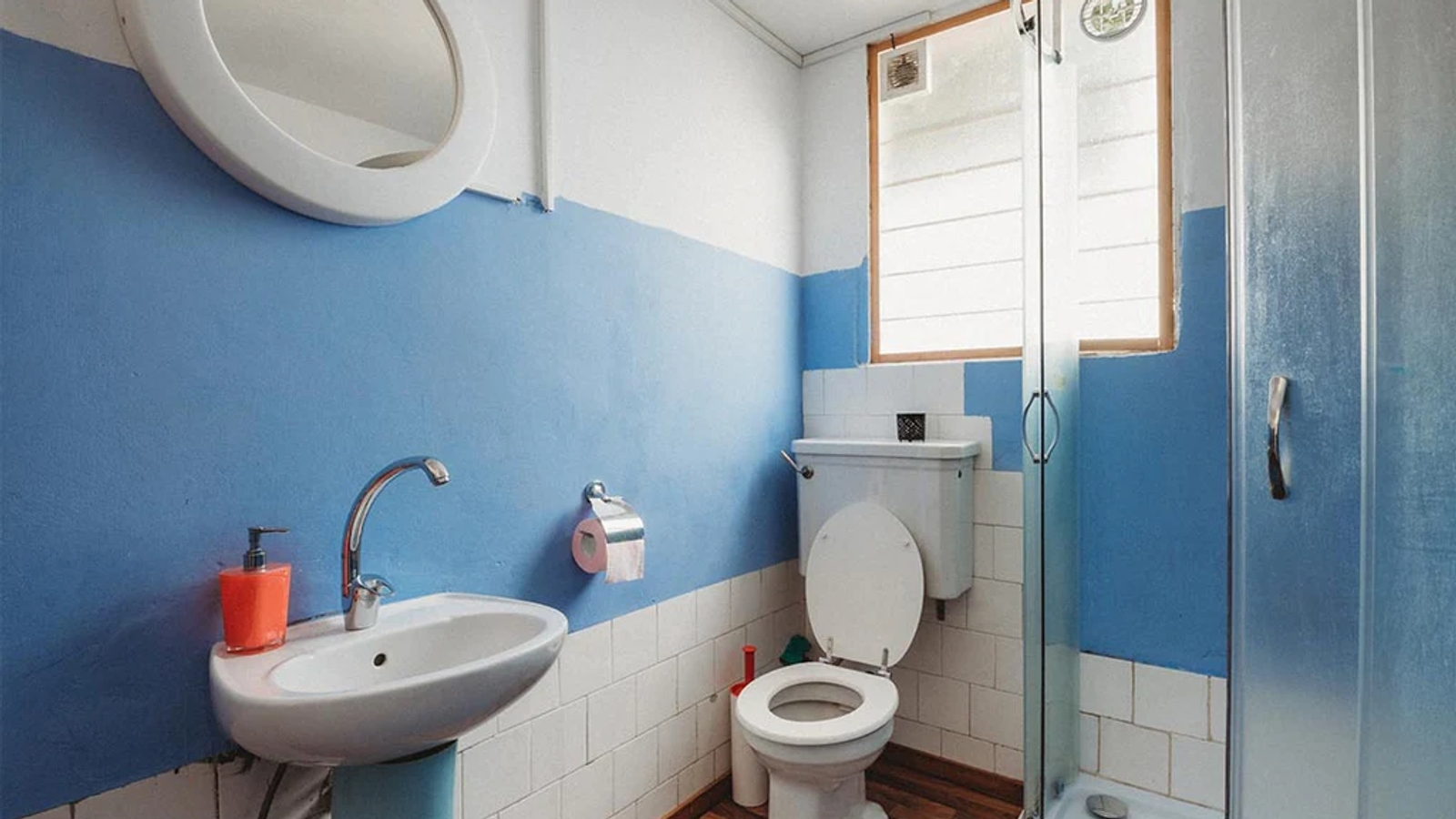
Our water waste is awash with harsh chemicals, bleach, and strong disinfectants. While the industry promises bleach poses low risk (we’ll get into that later) it’s not hard to imagine the damage that could cause to animals and wildlife if they get in contact with what we flush away.
And with £262m worth of toilet cleaner, bleach and disinfectants sold in 2021 (according to Statista), that’s also a lot of plastic waste that could be avoided.
While some eco friendly toilet cleaner do come in plastic bottles, they are almost always made with recycled plastics. This not only helps reduce demand for the manufacture of virgin plastic (and thus more demand for oil) but gives existing plastics a practical second life.
Even better, there are lower waste options, allowing you to buy a bottle for life and simply fill up when you run empty.
What’s the difference between standard and eco friendly toilet cleaner?
Here are a couple of things that we look out for in an eco friendly toilet cleaner to get you started.
1. Refillability
While recycling can be part of the solution for our plastic waste problem, reducing what we create or cutting it out to begin with is the real answer.
Buying a big plastic bottle of bleach or toilet cleaner means contributing yet another bit of plastic waste that cold end up in landfill or in our oceans, causing potential damage and harm to wildlife. Looking further into the future, bottles like these can break down into microplastics and other harmful residue. The best way to deal with plastic like this is to avoid it to begin with.
Buying a refillable product means you can either avoid the plastic (by using a different type of container) or at least minimise your plastic footprint to one container. With refill locations popping up everywhere nowadays, it’s easier than ever to top up nearby. If in person isn’t for you, there are plenty of companies that offer refills delivered to your door.
2. Cruelty-free
While animal testing for finished household products in the UK is banned, there are plenty of ingredients used in UK products that are still tested on animals.
The products listed in this guide are certified animal cruelty-free, so when you’re cleaning your loo you can have the peace of mind that your eco friendly toilet cleaner doesn’t contribute to the mistreatment of our furry friends.
3. Better chemicals
Most regular toilet cleaners contain very strong toxic chemicals like sodium hypochlorite (otherwise known as bleach). Bleach is very corrosive and toxic for humans – whether it’s ingested, touches our skin or reaches lungs or eyes.
Bleach turns into toxic organochlorines, which can take centuries to decompose. While the industry says chlorine bleach traces are low in waste waters, this isn’t the whole story, as journalist Lucy Siegle wrote for the Guardian back in 2007:
“But the real ethical issue centres around manufacture. Bleach is from the organochlorine family of chemicals, compounds rarely found in nature and which can take centuries to decompose.
“America's Great Lakes are used as the canary in the coal mine for the global effects of organochlorine pollution on water: 200 compounds have been detected in the water, sediments and animals, and traces found in breast milk. Greenpeace has called for a complete end to organochlorine production. Arguably, by buying household bleach, although it can be considered relatively innocuous in itself, it helps to prop up the whole organochlorine industry.”
Eco friendly toilet cleaner usually uses citric acid, which is an organic chemical and colourless. So if you want to avoid any potential damage to the environment, it would be wise to look at eco friendly toilet cleaner alternatives. So without further ado, let’s get to it!
Our Top 5 Eco Friendly Toilet Cleaners
1. Ekologik
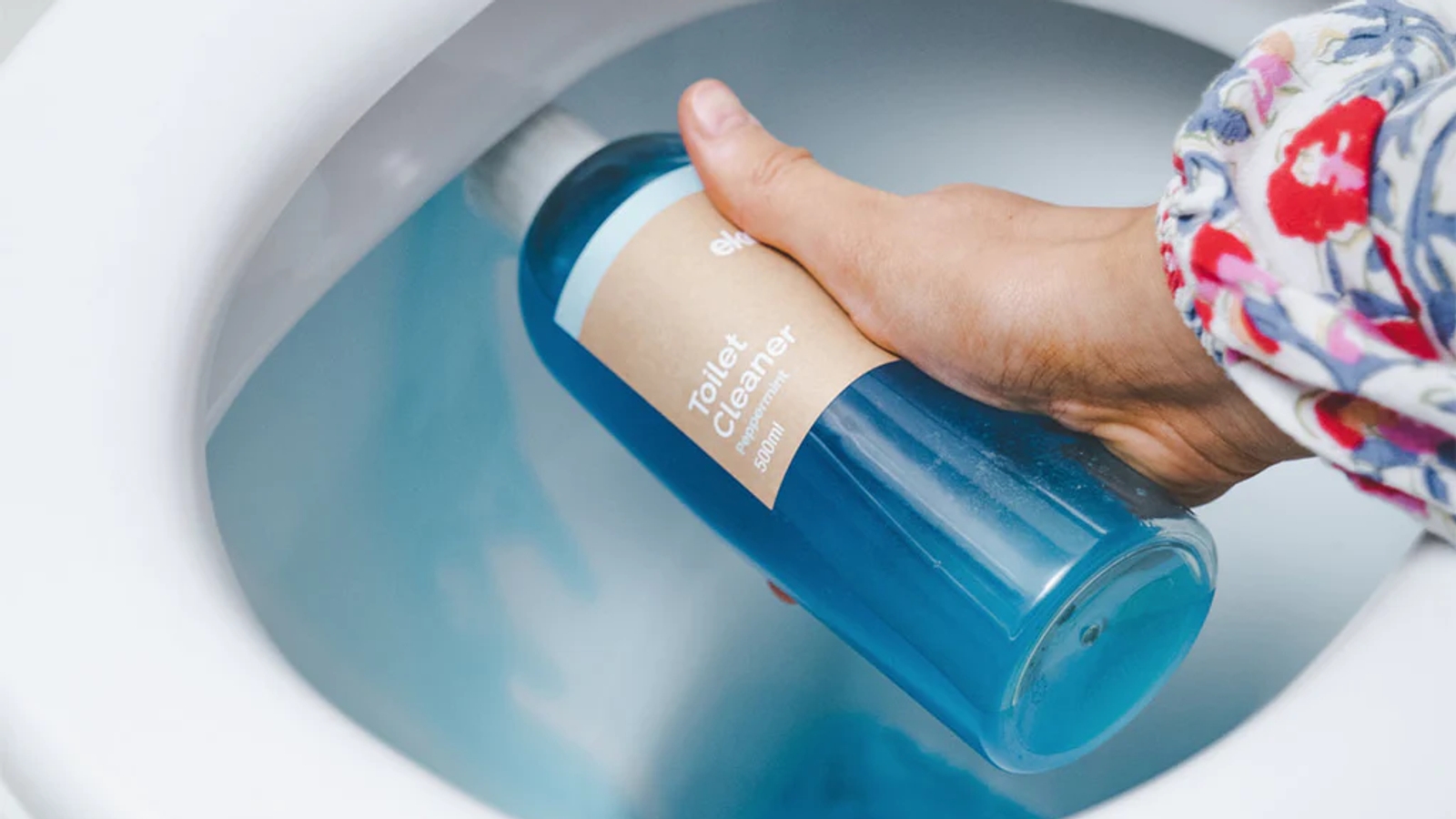
This eco-friendly toilet cleaner is refillable and super duper zero waste. The ingredients include Guar bean and Citric acid.
🐇 Vegan and cruelty-free
🌍 Plastic-free and compostable packaging
🌴 Biodegradable and palm-oil free
Ekologik’s stickers and small cardboard boxes (containing pods) are compostable, so you can dispose of them at home in your food waste bin.
Image credit: Ekologik
2. True and Bare
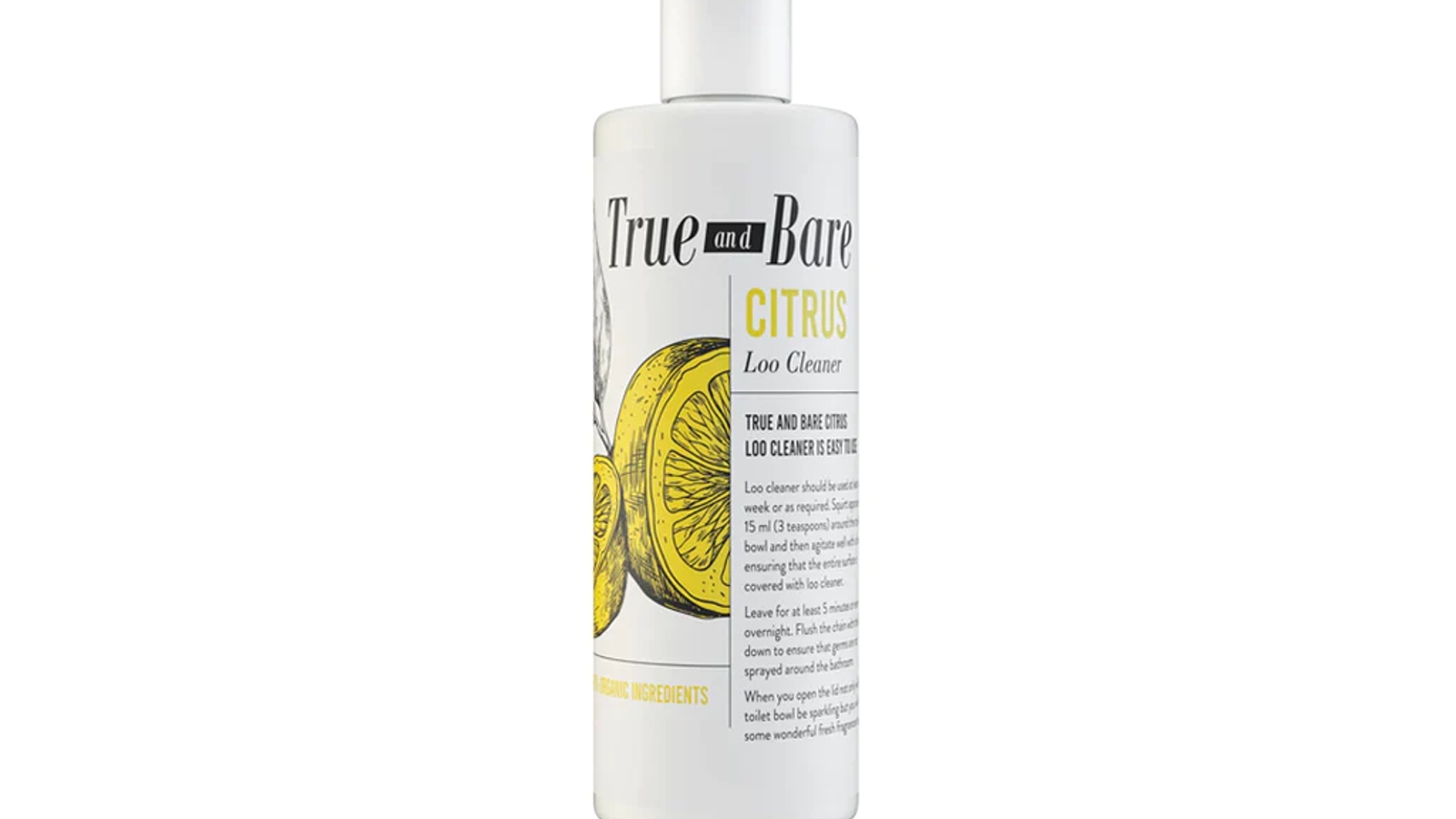
True and Bare’s Loo Cleaner uses a powerful combination of organic aloe vera leaf juice and organic cider vinegar to leave toilet bowls spotless after cleaning with a brush. Available in a zesty citrus fragrance, removing any nasty smells naturally.
🌸 Certified allergy-friendly UK
🐇 Vegan and cruelty-free certified
✅ Awarded Ethical Consumer Best Buy
While True & Bare bottles are technically plastics, they are made from biopolymers produced from sugar cane waste. By using renewable sugar cane they also capture CO2 during production, greatly reducing greenhouse gases generated during the manufacturing process. This plastic is also 100% recyclable as PET so can be put in kerbside recycling bins.
Image credit: True and Bare
3. Iron and Velvet
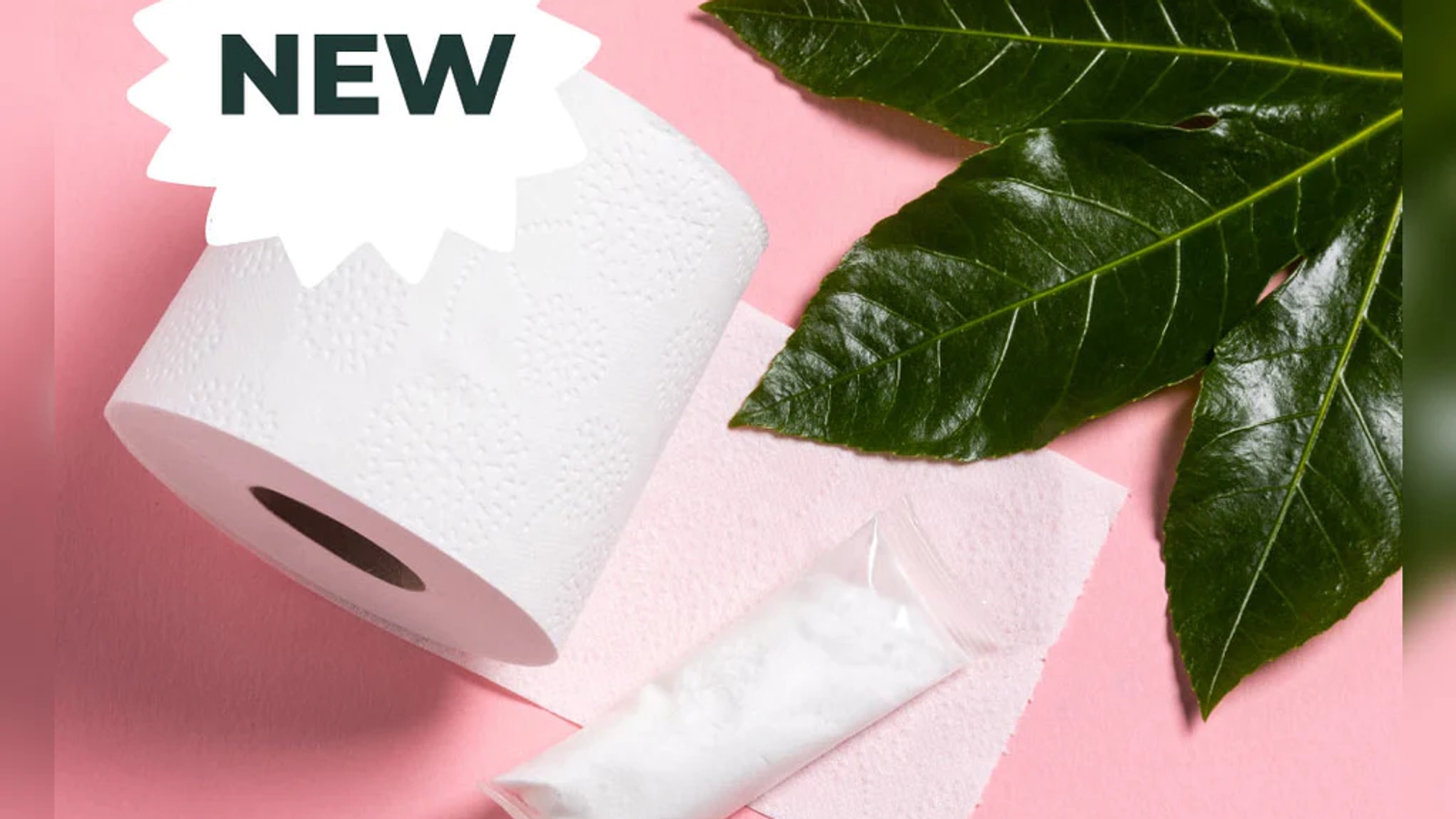
Drop one of these Toilet Fizz zero-waste sachets into your toilet and let it get to work. Once diluted, the sachets this cleaner comes in will biodegrade in just a couple of weeks and leaves no microplastics in our waterways.
🌍 100% plastic free
🐇 Vegan friendly, cruelty-free and palm oil-free
📦 Deliveries come in cardboard boxes and use paper tape
Iron & Velvet don’t test on animals and wont work with any suppliers that requires animal testing
Image credit: Iron & Velvet
4. Bio-D
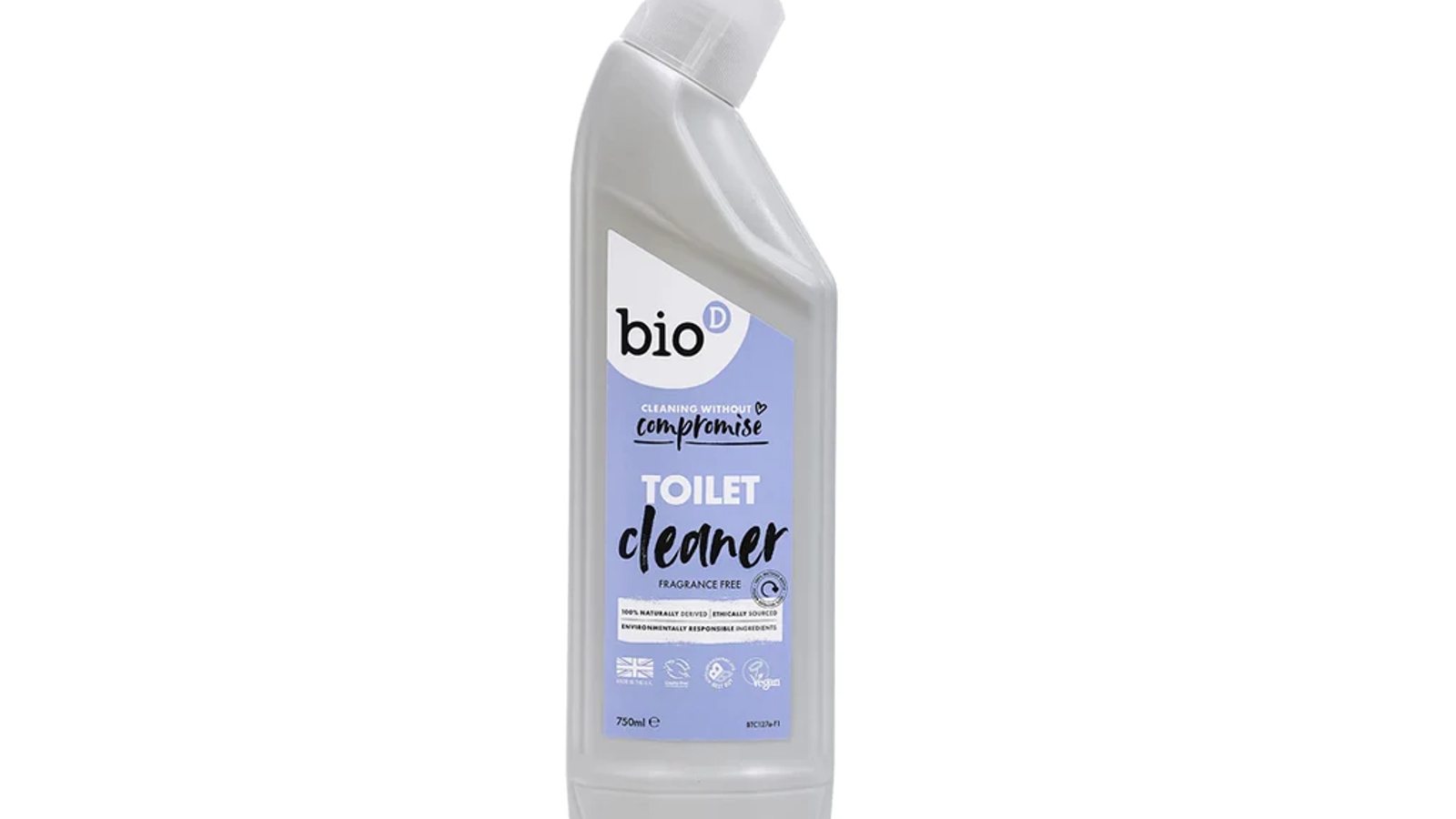
Bio-D’s Concentrated Fragrance Free Toilet Cleaner is a good option if you’re looking to switch your toilet cleaner out without a big change.
It still looks similar and comes in the same form factor, though the bottles are made from recycled High Density Polythene plastic (rHDPE). But this toilet cleaner is eco-friendly in lots of other ways.
🐇 Vegan friendly and cruelty-free
🌸 Hypoallergenic formulation
✅ Awarded Ethical Consumer Best Buy
Image credit: Bio-D
5. Ecover
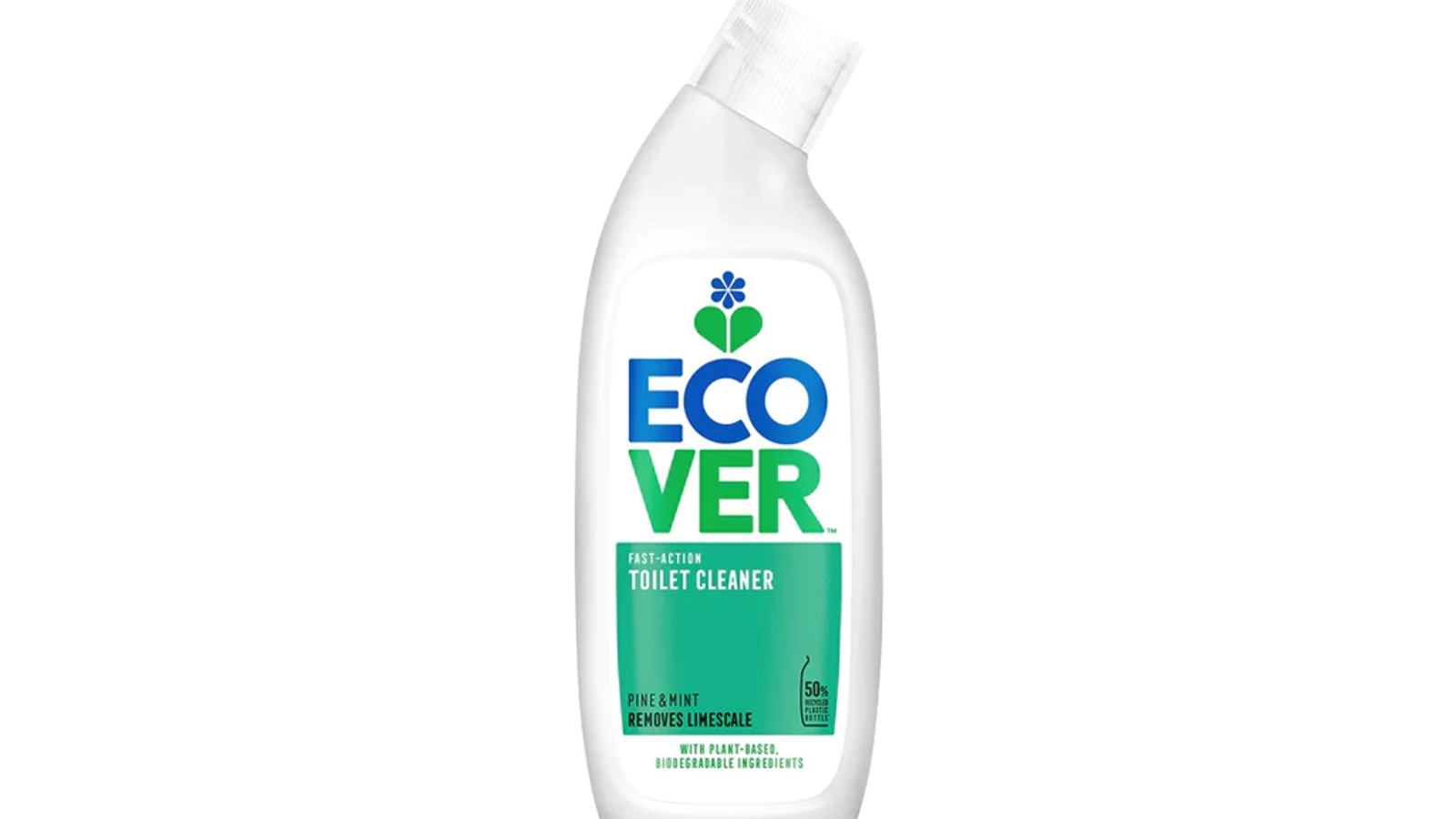
This citric acid-based cleaner is very easy to find in high street shops, supermarkets and refill shops since Ecover is one of the older sustainable brands out there.
As with Bio-D, Ecover is a good option if you’re looking for a simple swap out.
🌿 Plant-based biodegradable ingredients
🐇 Vegan friendly and cruelty-free certified
🥇 Multiple award-winning
Ecover have been around for a long time (they founded in 1979) and have many awards under their belt. While they are a big brand with large manufacturing lines, Ecover say their factories are certified zero-waste.
Their bottles (excluding the cap) are made from 100% post-consumer recycled plastic, and with many refill locations across the county, Ecover can be an even lower impact choice if you factor in refillability, extending the life of your bottle past single-use.
Image credit: Ecover



